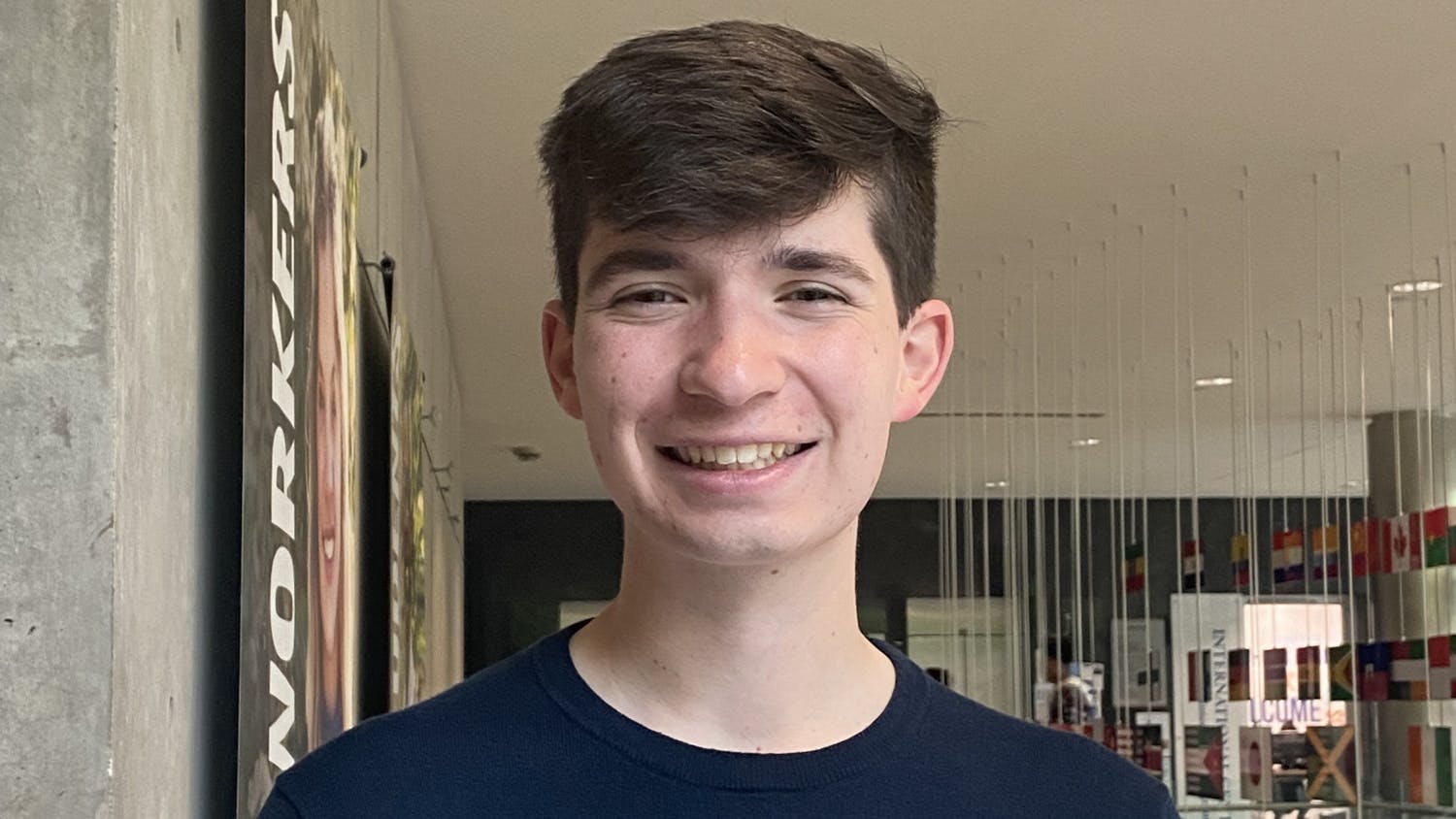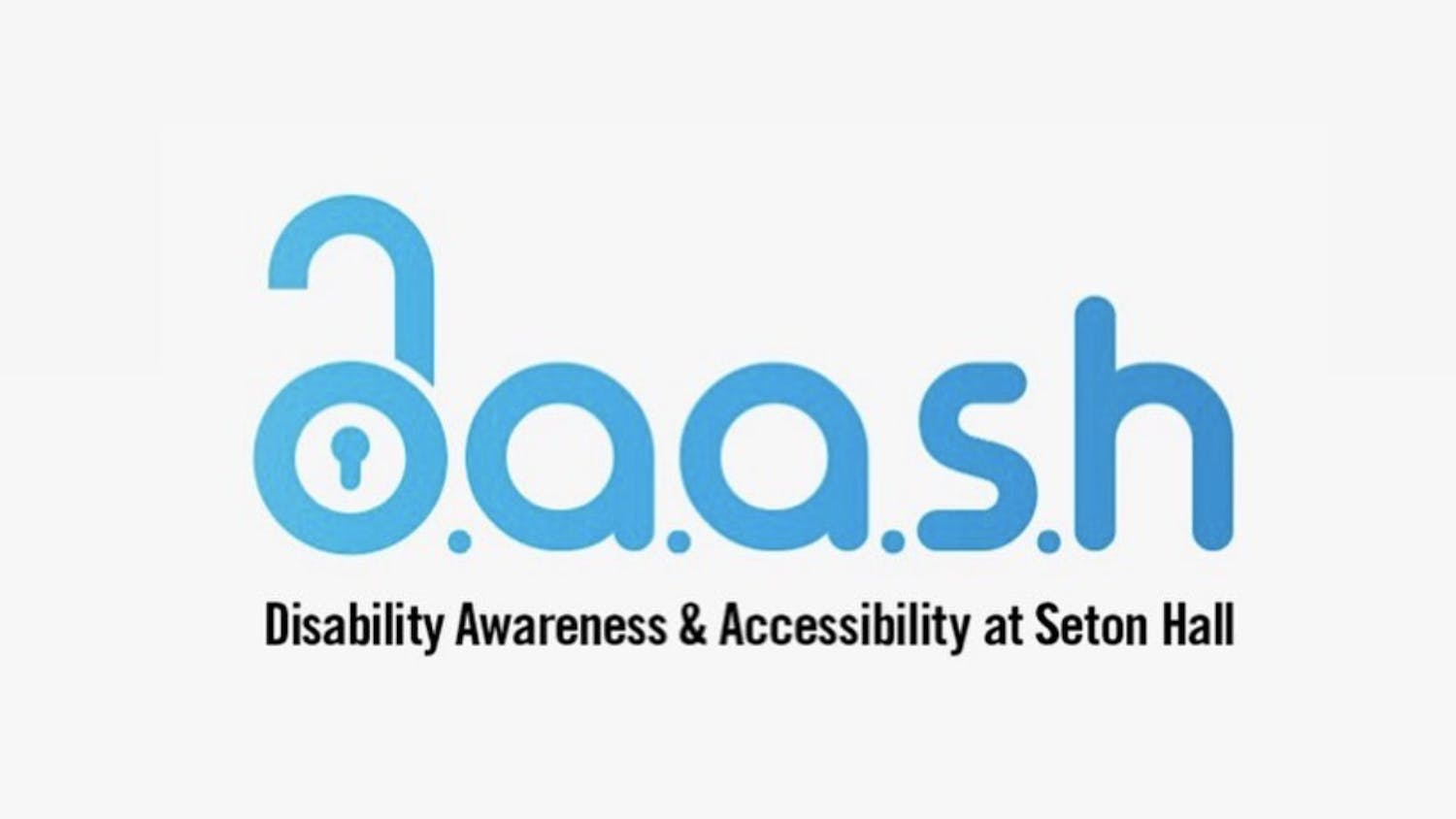[caption id="attachment_15795" align="aligncenter" width="838"] Seton Hall’s Institute of Judeo-Christian Studies is the oldest in the world. Sarah Yenesel/Staff Photographer[/caption]
Seton Hall’s Institute for Judeo-Christian Studies will host the 23rd Monsignor Oesterreicher Memorial Lecture to discuss the importance of Nostra Aetate to Catholic-Jewish relations in modern history on Thursday, Nov. 3, from 7:30-9:30 p.m. in the Beck Rooms of the Walsh Library.
The Nostra Aetate is a papal declaration on Catholicism’s relations to other religions, which was declared by Pope Paul VI in 1965. Nostra Aetate is Latin for “In Our Time.”
The lecture is held in memory of Monsignor John Oesterreicher who founded the Institute of Judeo-Christian Studies at Seton Hall in 1953, said Fr. Lawrence Frizzell, the director of the Institute of Judeo-Christian studies at SHU, via an email interview.
Rabbi Noam Marans, the speaker and the American Jewish Committee’s director of Interreligious and Intergroup Relations, said in an email interview that he plans to focus on recent Catholic contributions to Catholic-Jewish relations on the occasion of the 50th anniversary of Nostra Aetate. This lecture is intended to prompt the examination of Catholic-Jewish relations on campus.
In Nostra Aetate the Church rejects nothing, ‘that which is “true and holy” in other religions, extending a hand to Hinduism, Buddhism, and Islam-as well as Judaism,’ Marans said. Furthermore, the document rejects the claim that Jews collectively are guilty of killing Jesus Christ, denounces anti-Semitism and recognizes Judaism as the roots of Christianity.
“Interreligious dialogue on a Catholic university campus should be informed by knowledge and guided by empathy for our neighbor,” Frizzell said.
Frizzell’s position is affirmed by Marans.
“Together, Catholics and Jews developed and sustained academic institutions of inquiry and interreligious dialogue…. especially Seton Hall’s Institute of Judeo-Christian Studies, which is the oldest in the world,” Marans said. “Without this academic focus and center outreach, Catholic-Jewish relations would not have reached the golden age now enjoyed by Catholics and Jews.”
Although Nostra Aetate acknowledges that which is “true and holy” in other religions, it directly rejects religious pluralism when the document states, “It is, therefore, the burden of the Church’s preaching to proclaim the cross of Christ as the sign of God’s all-embracing love and as the fountain from which every grace flows.”
This strong affirmation of Catholic doctrine could put-off some believers of other faiths, including those on campus. However, Frizzell said that “the education of students across the campus is led by professors of Catholic and several other faith communities; one expects that an atmosphere of good will and a deep concern for the common good of the society is conveyed in all situations.”
This is exemplified by Luke Powers, a senior history and Catholic theology major, who said, “I am grateful for my Jewish forefathers in the faith and they have much to teach me and they give me great witness on how to grow in my own Catholic faith.
In acknowledging the truth and perseverance of the Jewish faithful, I am strengthened to follow the Truth of the Church.”
Benjamin Jaros can be reached at benjamin.jaros@student.shu.edu
Seton Hall’s Institute of Judeo-Christian Studies is the oldest in the world. Sarah Yenesel/Staff Photographer[/caption]
Seton Hall’s Institute for Judeo-Christian Studies will host the 23rd Monsignor Oesterreicher Memorial Lecture to discuss the importance of Nostra Aetate to Catholic-Jewish relations in modern history on Thursday, Nov. 3, from 7:30-9:30 p.m. in the Beck Rooms of the Walsh Library.
The Nostra Aetate is a papal declaration on Catholicism’s relations to other religions, which was declared by Pope Paul VI in 1965. Nostra Aetate is Latin for “In Our Time.”
The lecture is held in memory of Monsignor John Oesterreicher who founded the Institute of Judeo-Christian Studies at Seton Hall in 1953, said Fr. Lawrence Frizzell, the director of the Institute of Judeo-Christian studies at SHU, via an email interview.
Rabbi Noam Marans, the speaker and the American Jewish Committee’s director of Interreligious and Intergroup Relations, said in an email interview that he plans to focus on recent Catholic contributions to Catholic-Jewish relations on the occasion of the 50th anniversary of Nostra Aetate. This lecture is intended to prompt the examination of Catholic-Jewish relations on campus.
In Nostra Aetate the Church rejects nothing, ‘that which is “true and holy” in other religions, extending a hand to Hinduism, Buddhism, and Islam-as well as Judaism,’ Marans said. Furthermore, the document rejects the claim that Jews collectively are guilty of killing Jesus Christ, denounces anti-Semitism and recognizes Judaism as the roots of Christianity.
“Interreligious dialogue on a Catholic university campus should be informed by knowledge and guided by empathy for our neighbor,” Frizzell said.
Frizzell’s position is affirmed by Marans.
“Together, Catholics and Jews developed and sustained academic institutions of inquiry and interreligious dialogue…. especially Seton Hall’s Institute of Judeo-Christian Studies, which is the oldest in the world,” Marans said. “Without this academic focus and center outreach, Catholic-Jewish relations would not have reached the golden age now enjoyed by Catholics and Jews.”
Although Nostra Aetate acknowledges that which is “true and holy” in other religions, it directly rejects religious pluralism when the document states, “It is, therefore, the burden of the Church’s preaching to proclaim the cross of Christ as the sign of God’s all-embracing love and as the fountain from which every grace flows.”
This strong affirmation of Catholic doctrine could put-off some believers of other faiths, including those on campus. However, Frizzell said that “the education of students across the campus is led by professors of Catholic and several other faith communities; one expects that an atmosphere of good will and a deep concern for the common good of the society is conveyed in all situations.”
This is exemplified by Luke Powers, a senior history and Catholic theology major, who said, “I am grateful for my Jewish forefathers in the faith and they have much to teach me and they give me great witness on how to grow in my own Catholic faith.
In acknowledging the truth and perseverance of the Jewish faithful, I am strengthened to follow the Truth of the Church.”
Benjamin Jaros can be reached at benjamin.jaros@student.shu.edu





